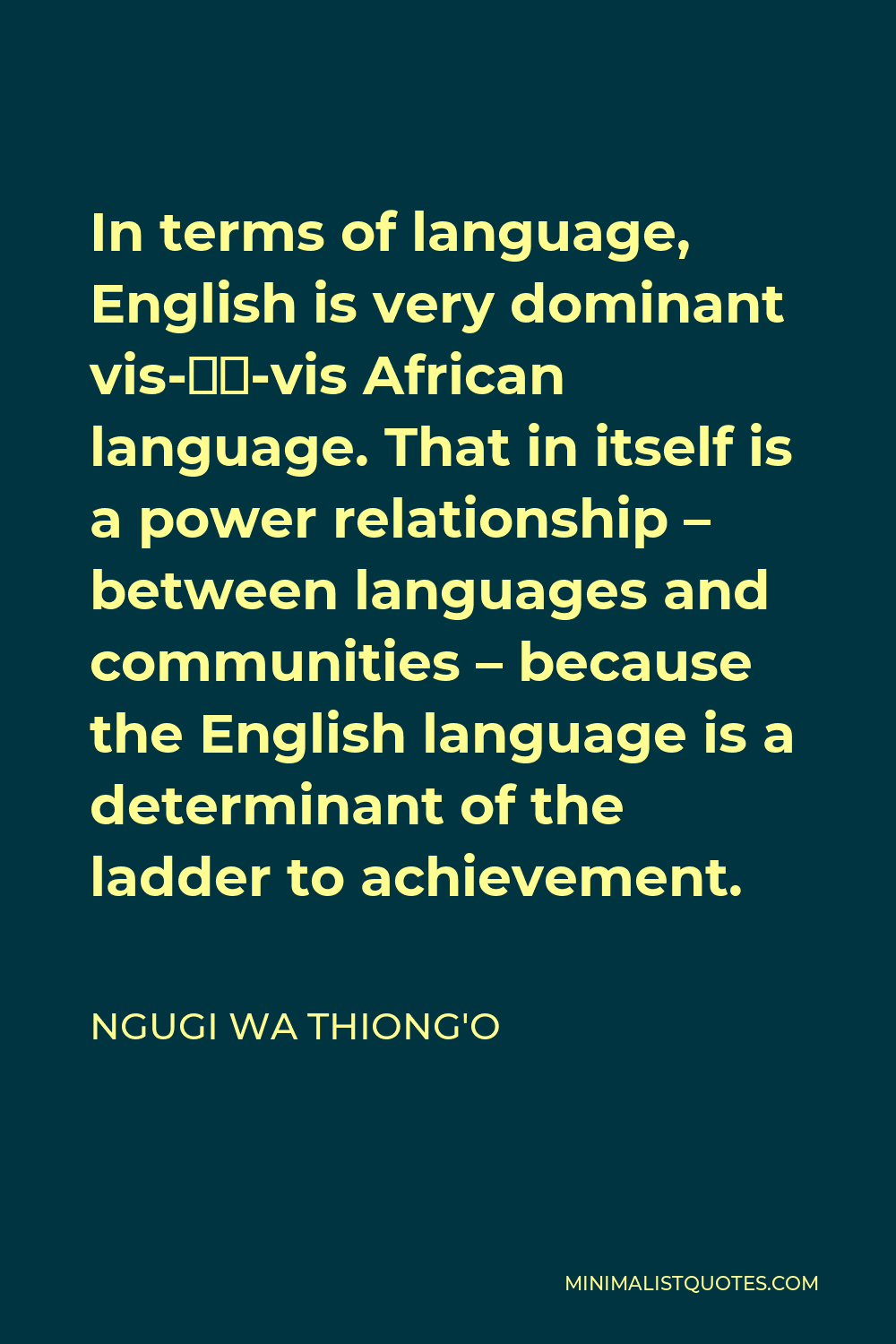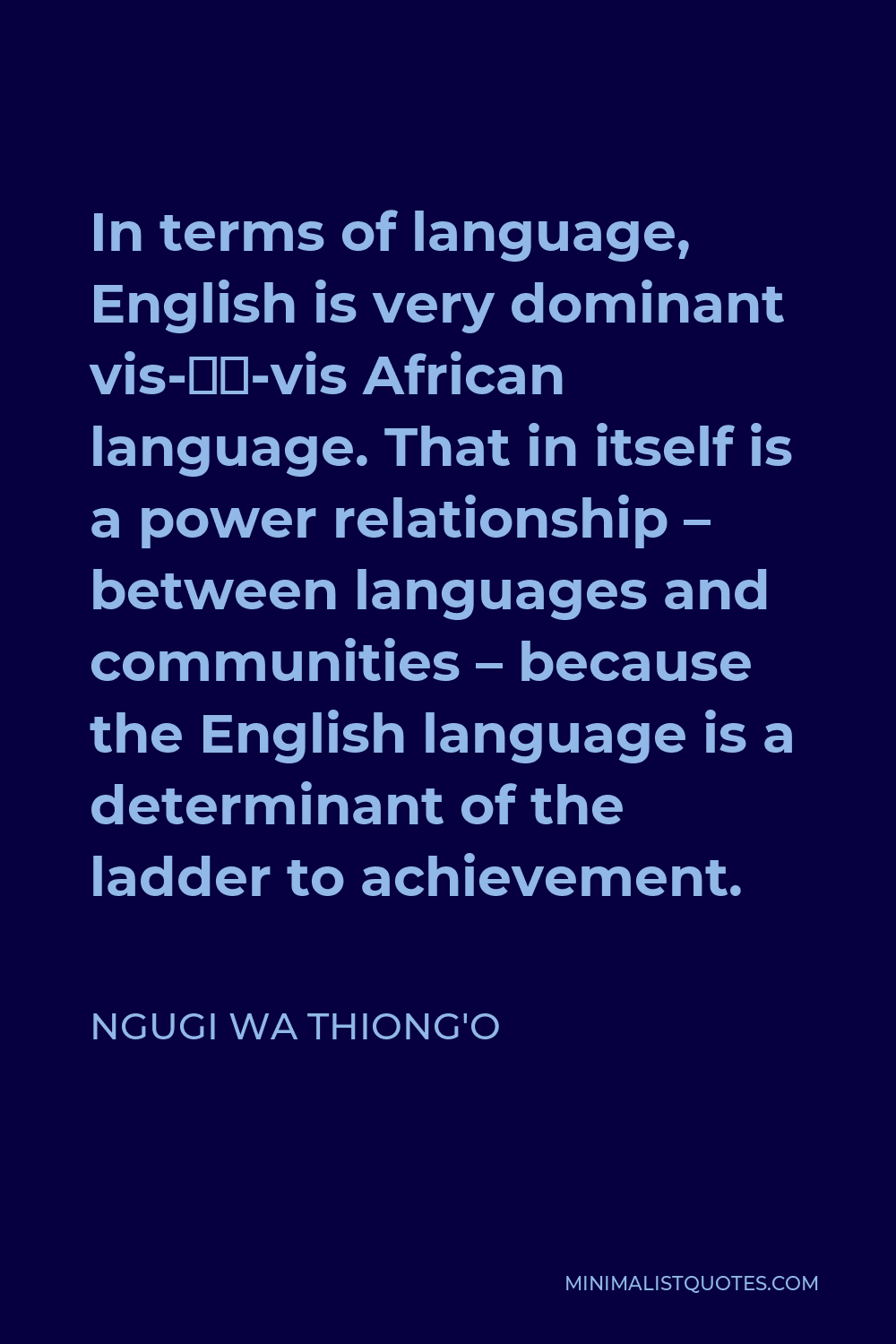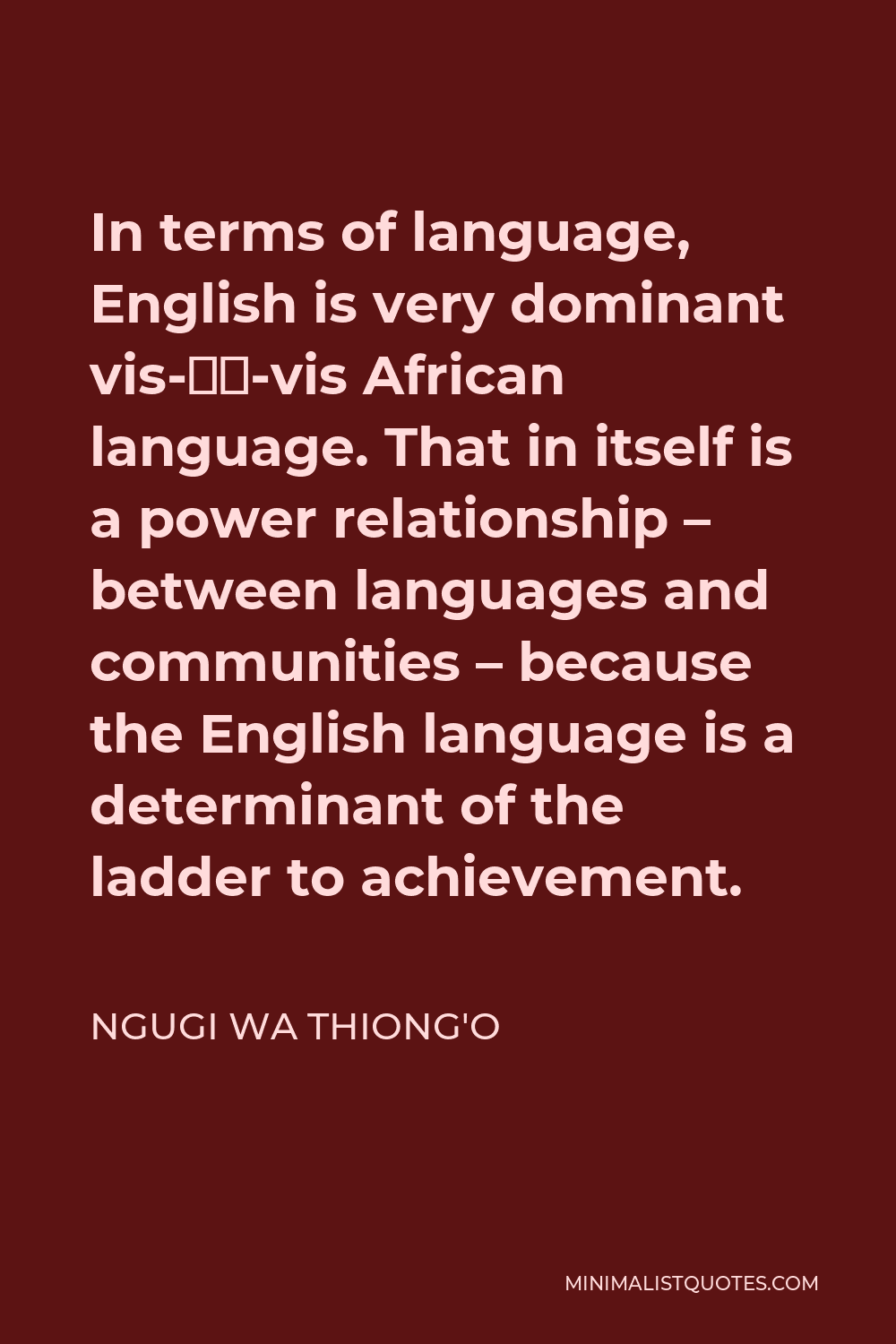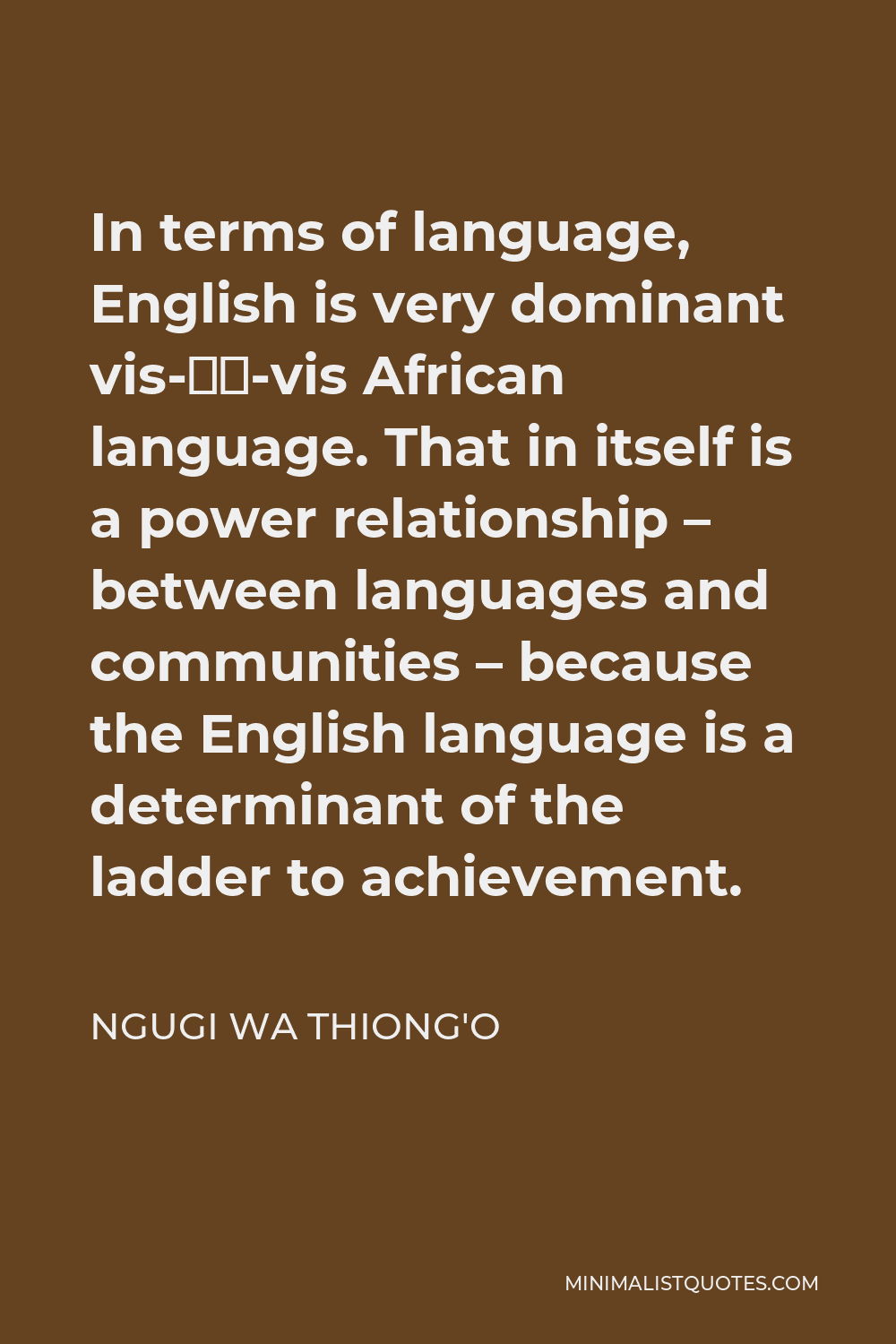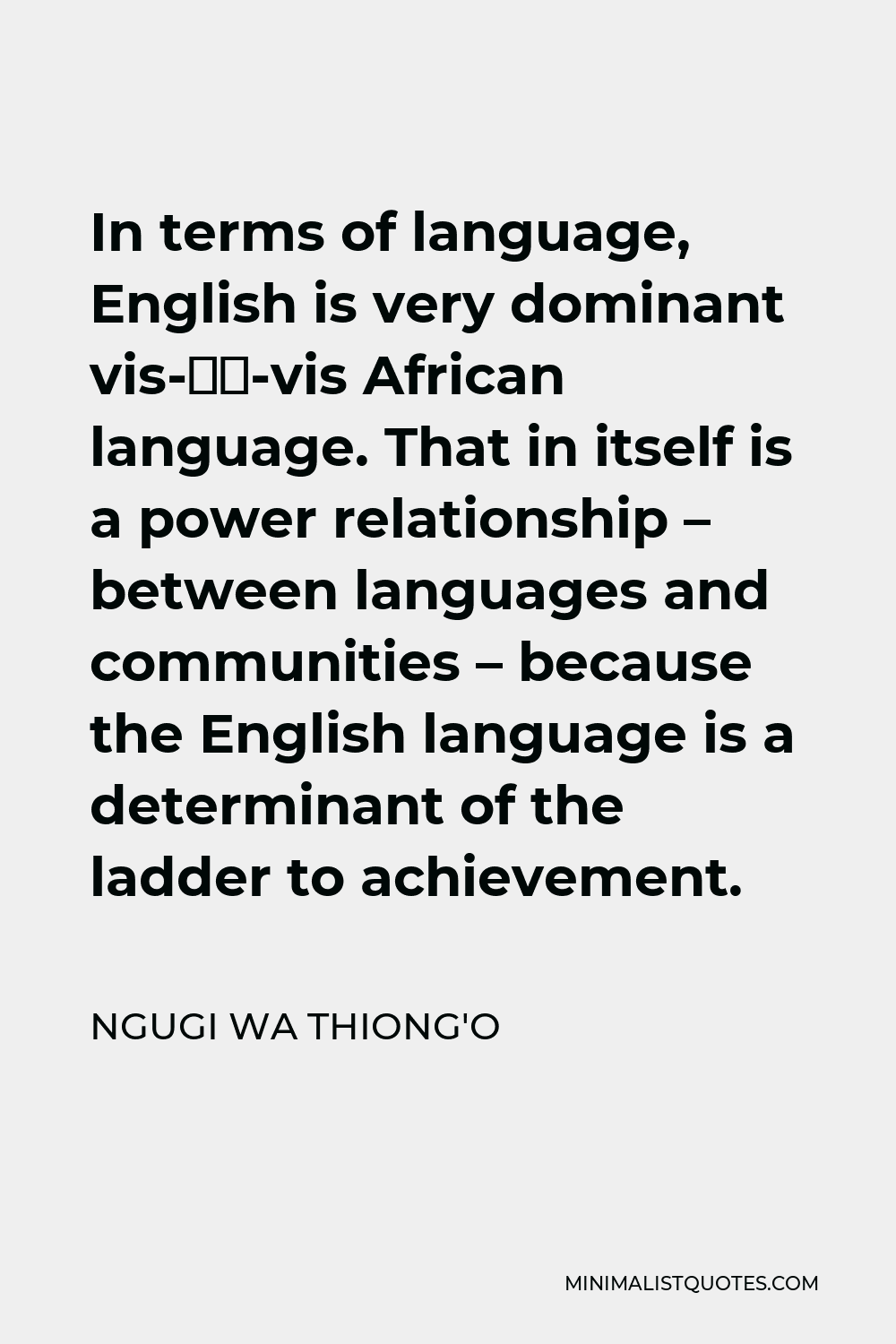Our lives are a battlefield on which is fought a continuous war between the forces that are pledged to confirm our humanity and those determined to dismantle it.
NGUGI WA THIONG'OIn terms of language, English is very dominant vis-Ã-vis African language. That in itself is a power relationship – between languages and communities – because the English language is a determinant of the ladder to achievement.
More Ngugi wa Thiong'o Quotes
-





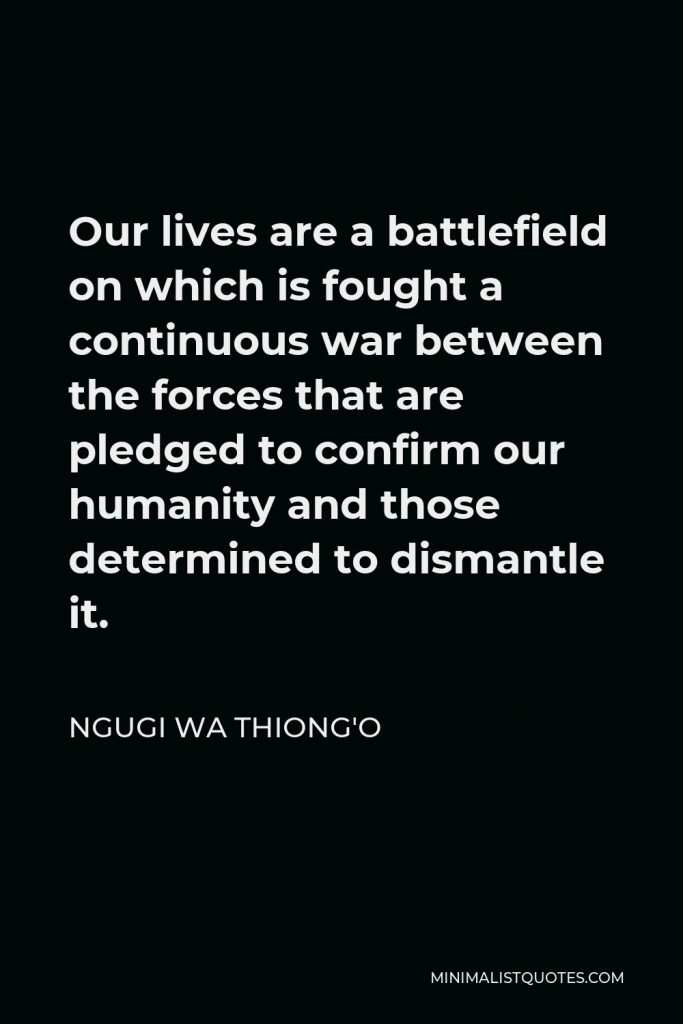

-





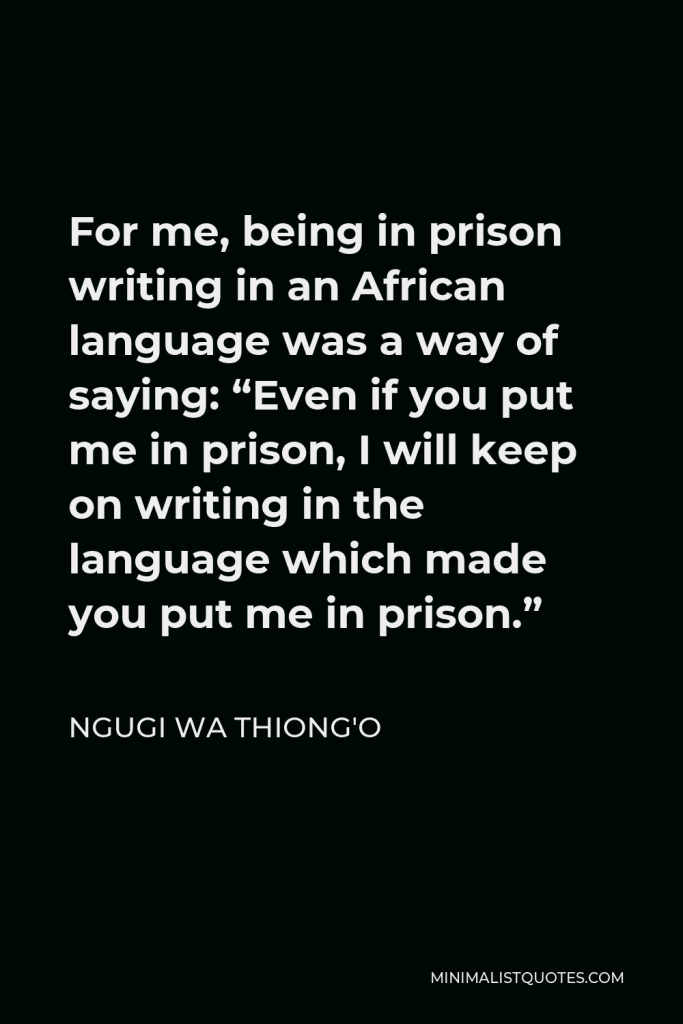

For me, being in prison writing in an African language was a way of saying: “Even if you put me in prison, I will keep on writing in the language which made you put me in prison.”
NGUGI WA THIONG'O -





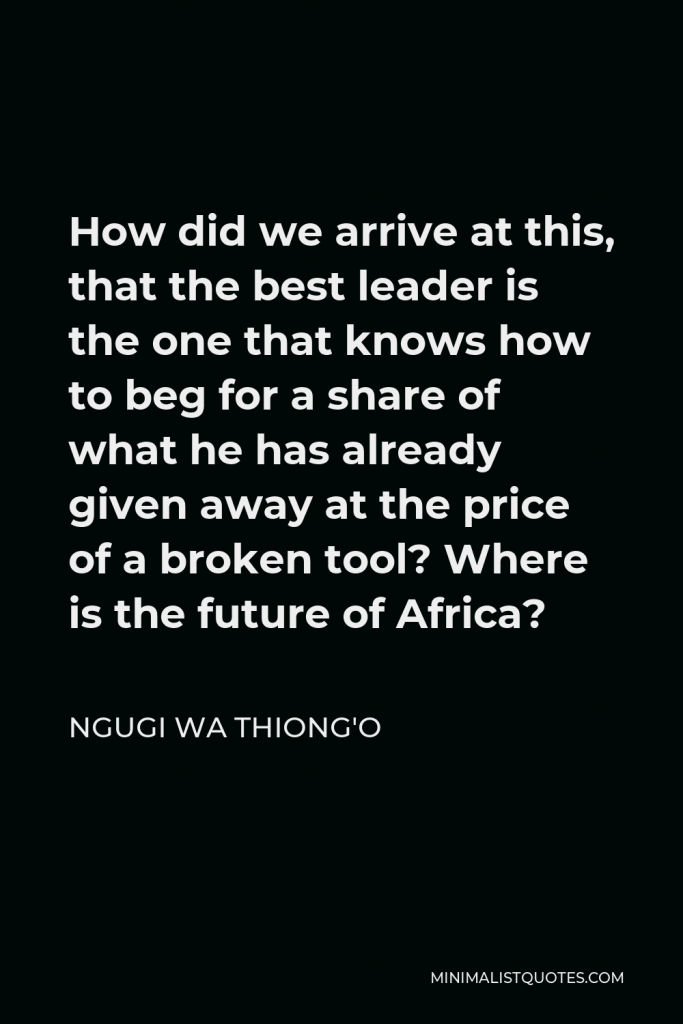

How did we arrive at this, that the best leader is the one that knows how to beg for a share of what he has already given away at the price of a broken tool? Where is the future of Africa?
NGUGI WA THIONG'O -





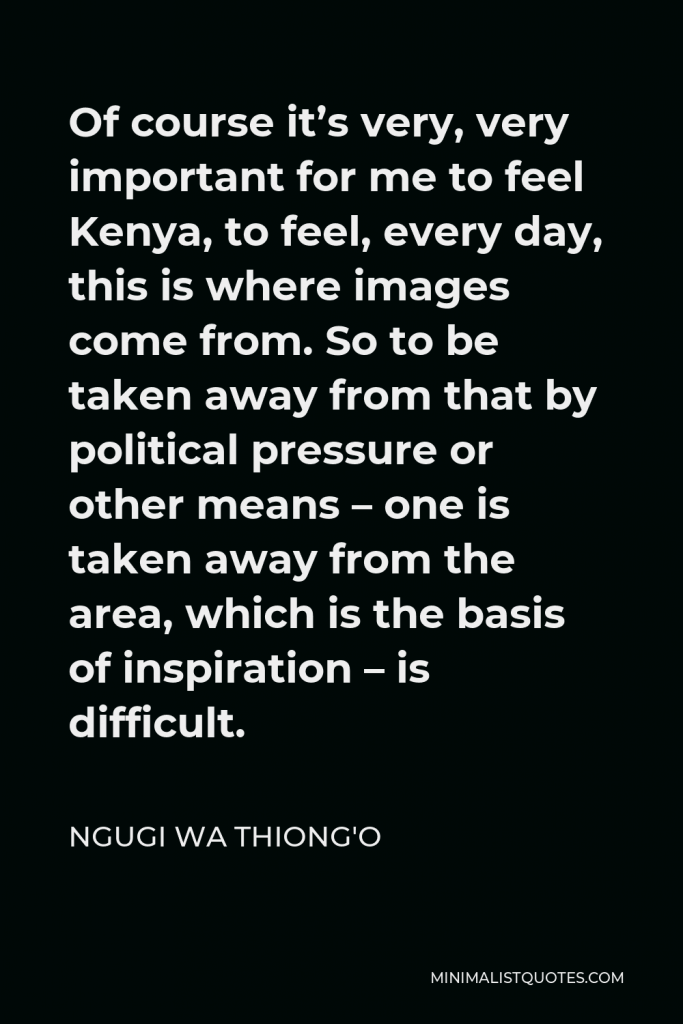

Of course it’s very, very important for me to feel Kenya, to feel, every day, this is where images come from. So to be taken away from that by political pressure or other means – one is taken away from the area, which is the basis of inspiration – is difficult.
NGUGI WA THIONG'O -





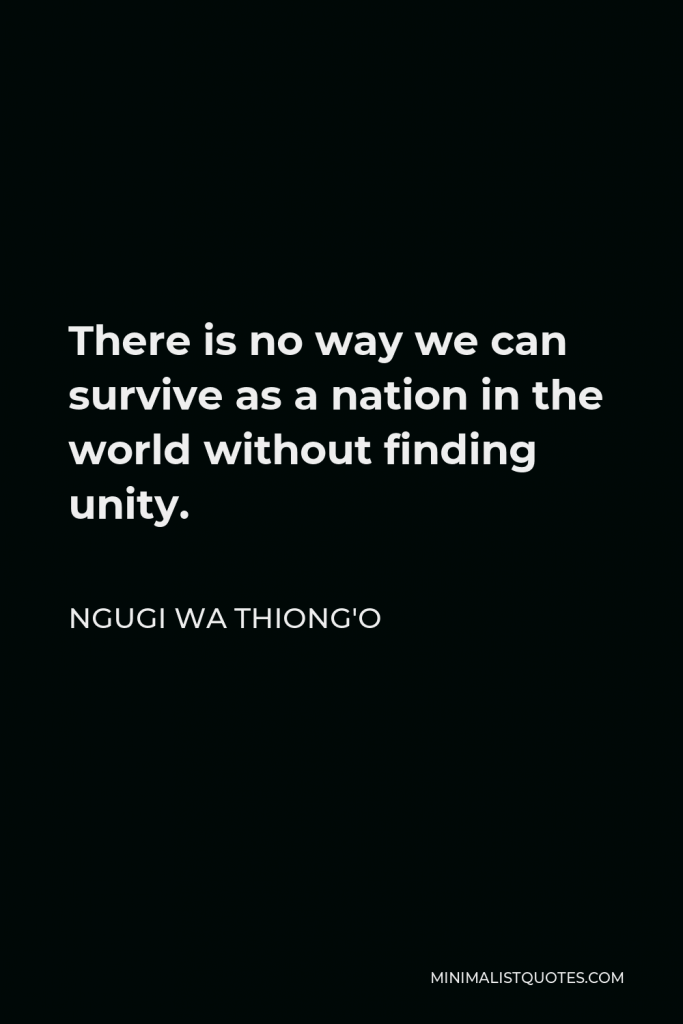

There is no way we can survive as a nation in the world without finding unity.
NGUGI WA THIONG'O -





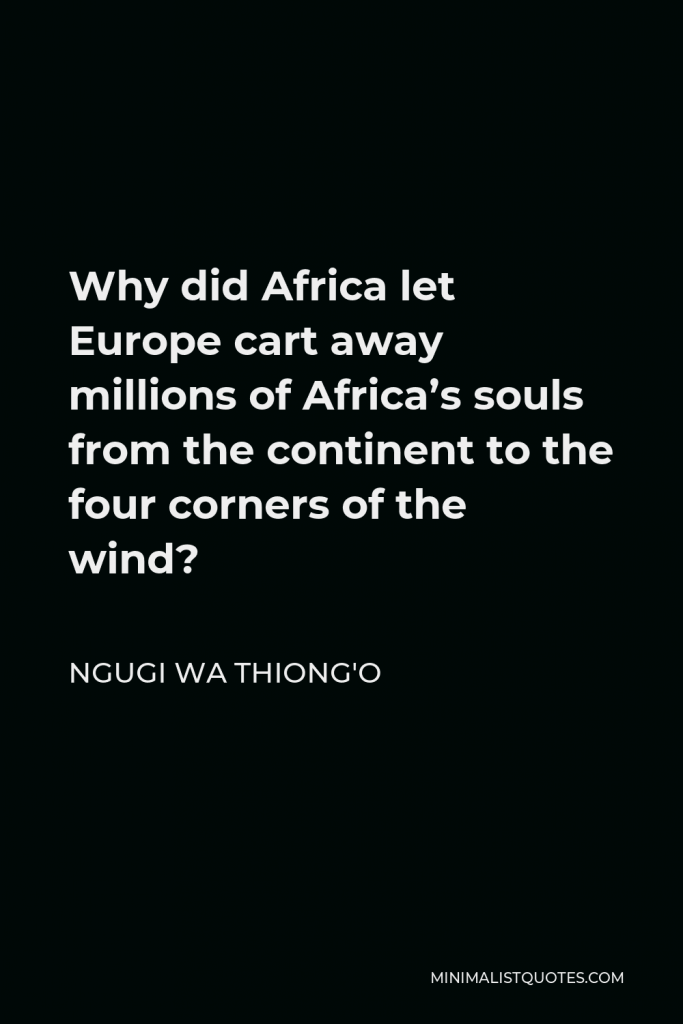

Why did Africa let Europe cart away millions of Africa’s souls from the continent to the four corners of the wind?
NGUGI WA THIONG'O -





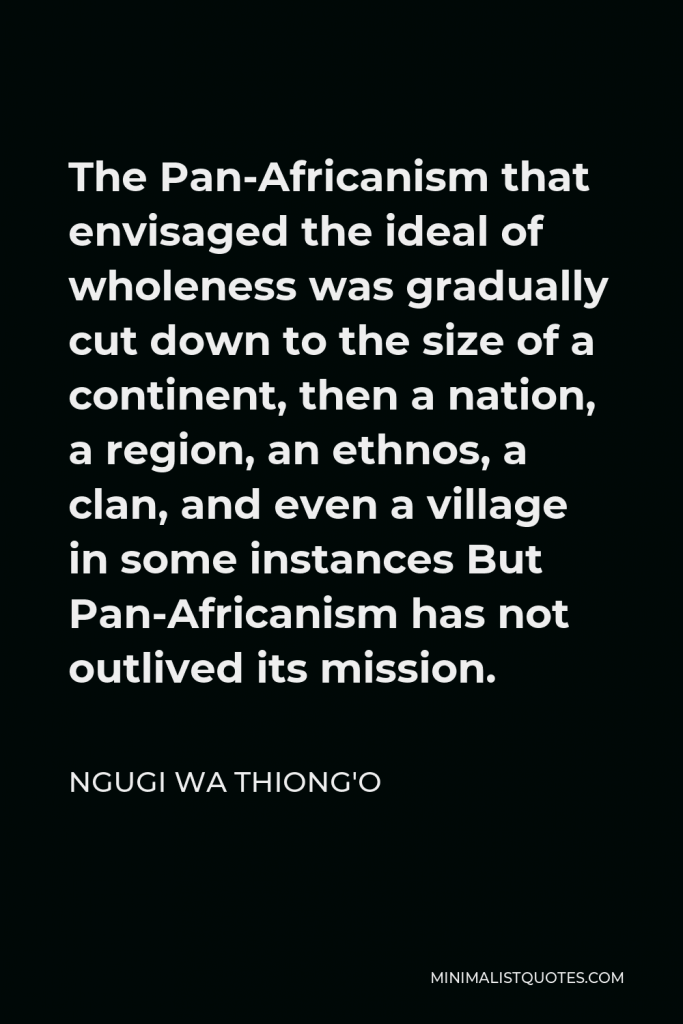

The Pan-Africanism that envisaged the ideal of wholeness was gradually cut down to the size of a continent, then a nation, a region, an ethnos, a clan, and even a village in some instances But Pan-Africanism has not outlived its mission.
NGUGI WA THIONG'O -





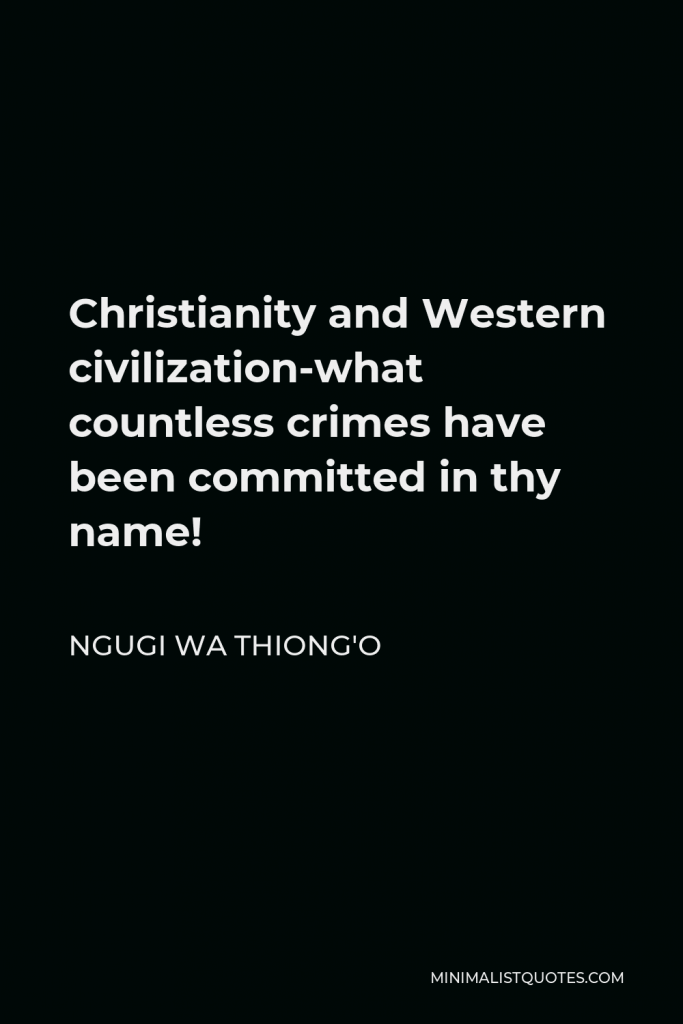

Christianity and Western civilization-what countless crimes have been committed in thy name!
NGUGI WA THIONG'O -





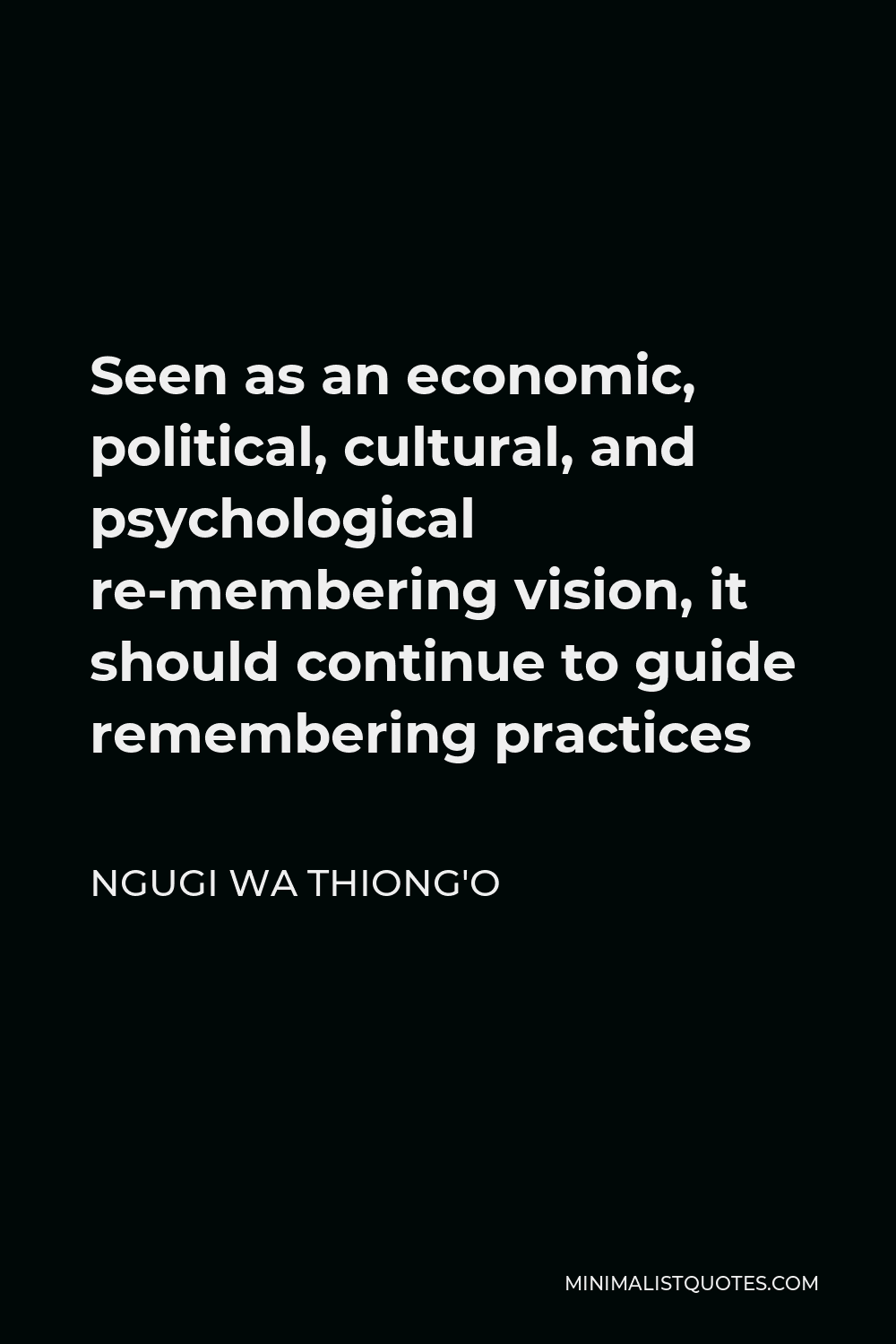
Seen as an economic, political, cultural, and psychological re-membering vision, it should continue to guide remembering practices
NGUGI WA THIONG'O -





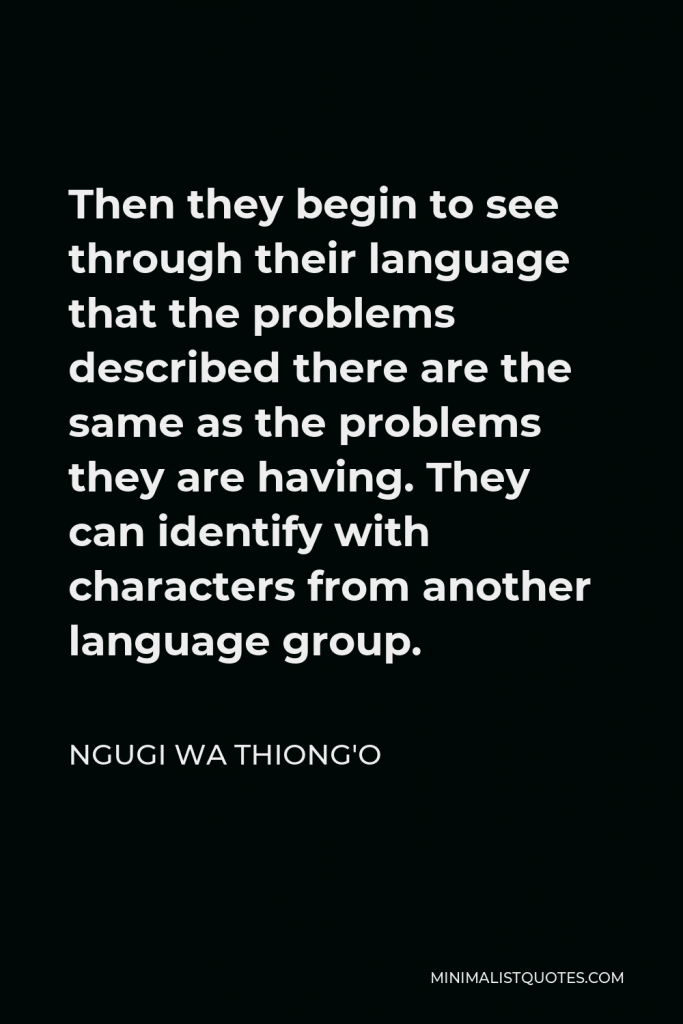

Then they begin to see through their language that the problems described there are the same as the problems they are having. They can identify with characters from another language group.
NGUGI WA THIONG'O -





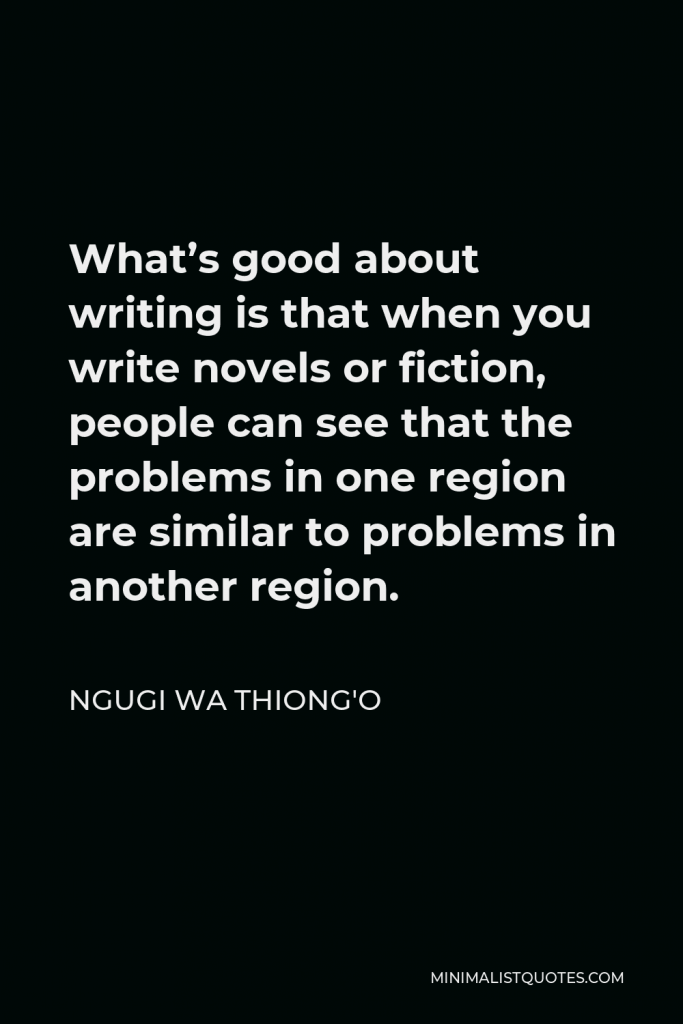

What’s good about writing is that when you write novels or fiction, people can see that the problems in one region are similar to problems in another region.
NGUGI WA THIONG'O -





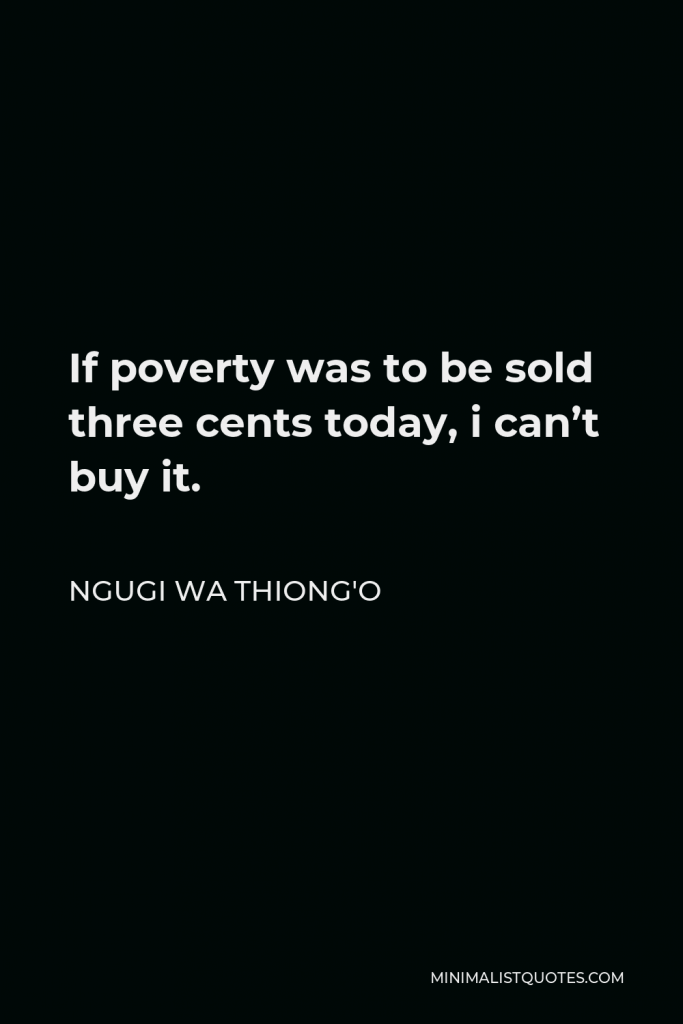

If poverty was to be sold three cents today, i can’t buy it.
NGUGI WA THIONG'O -





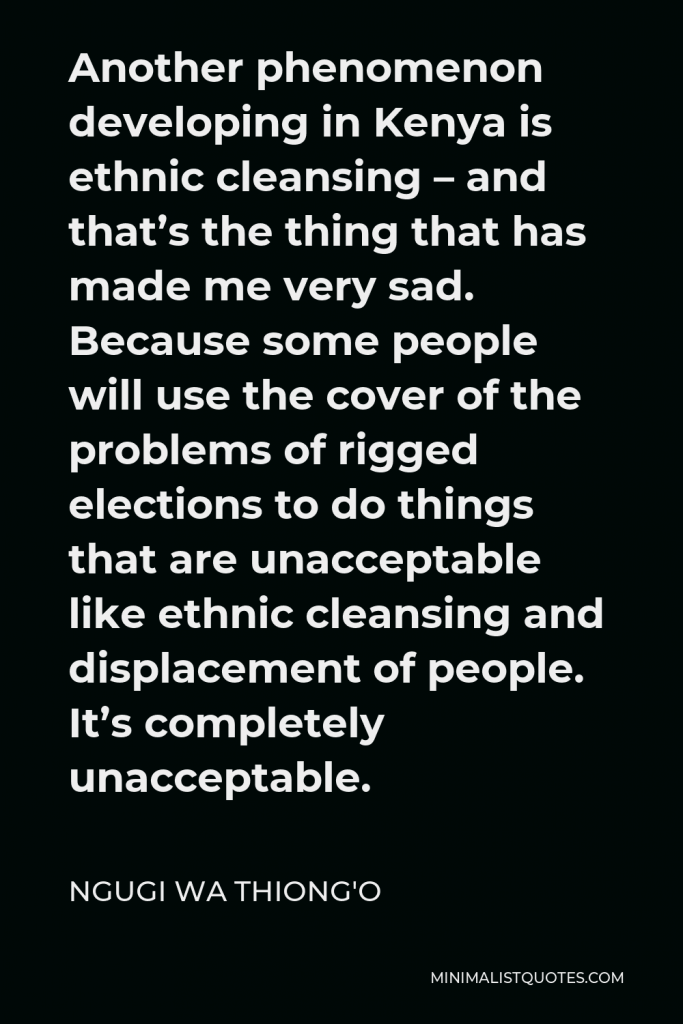

Another phenomenon developing in Kenya is ethnic cleansing – and that’s the thing that has made me very sad. Because some people will use the cover of the problems of rigged elections to do things that are unacceptable like ethnic cleansing and displacement of people. It’s completely unacceptable.
NGUGI WA THIONG'O -





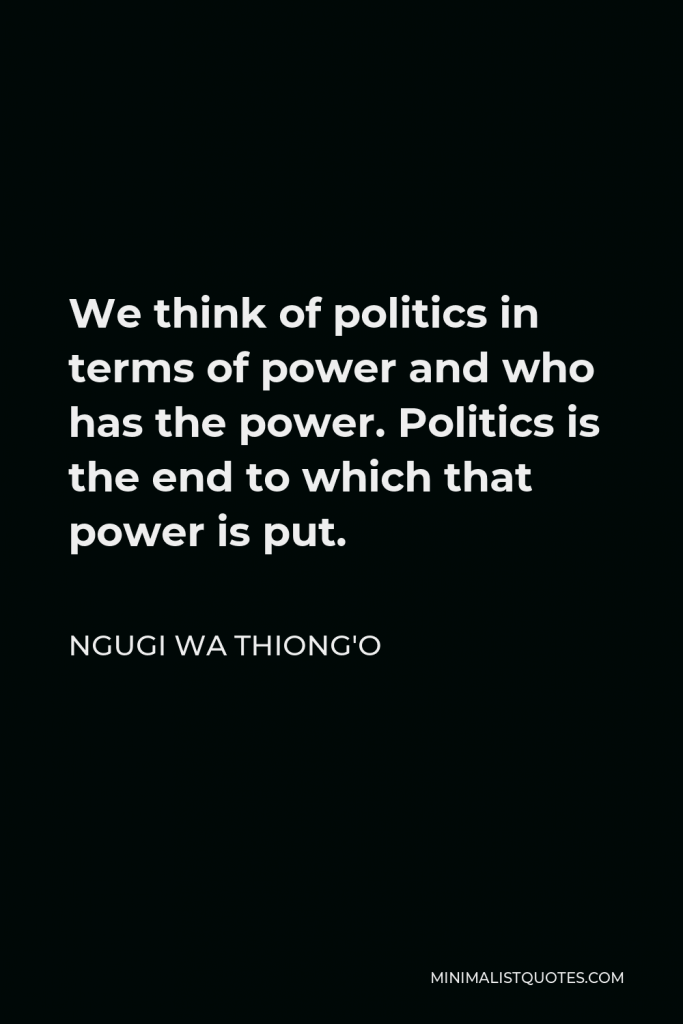

We think of politics in terms of power and who has the power. Politics is the end to which that power is put.
NGUGI WA THIONG'O -





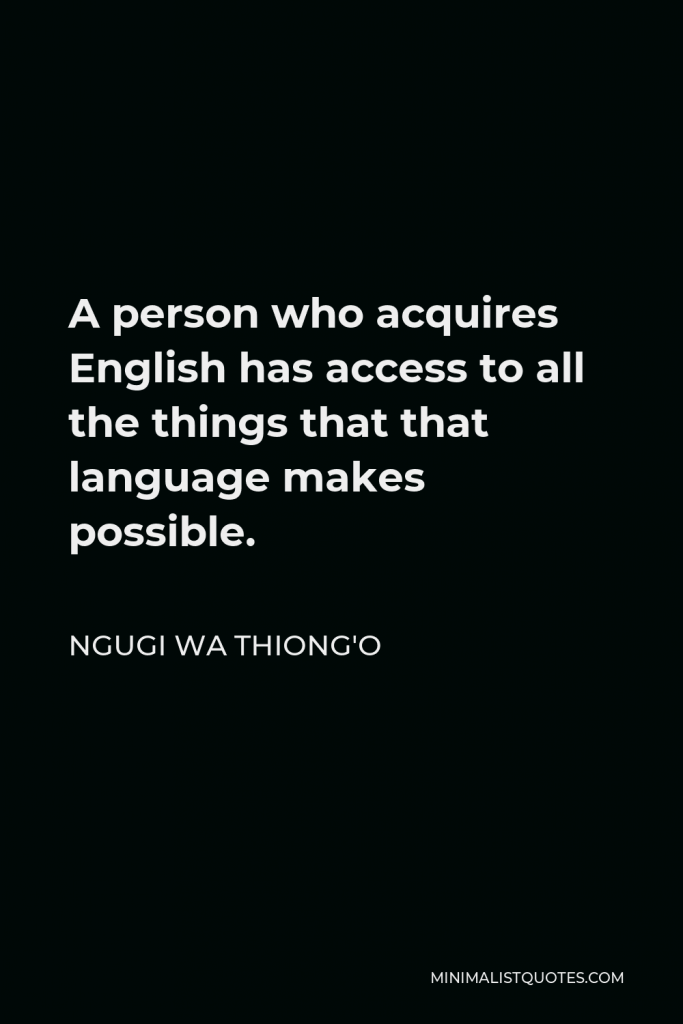

A person who acquires English has access to all the things that that language makes possible.
NGUGI WA THIONG'O -





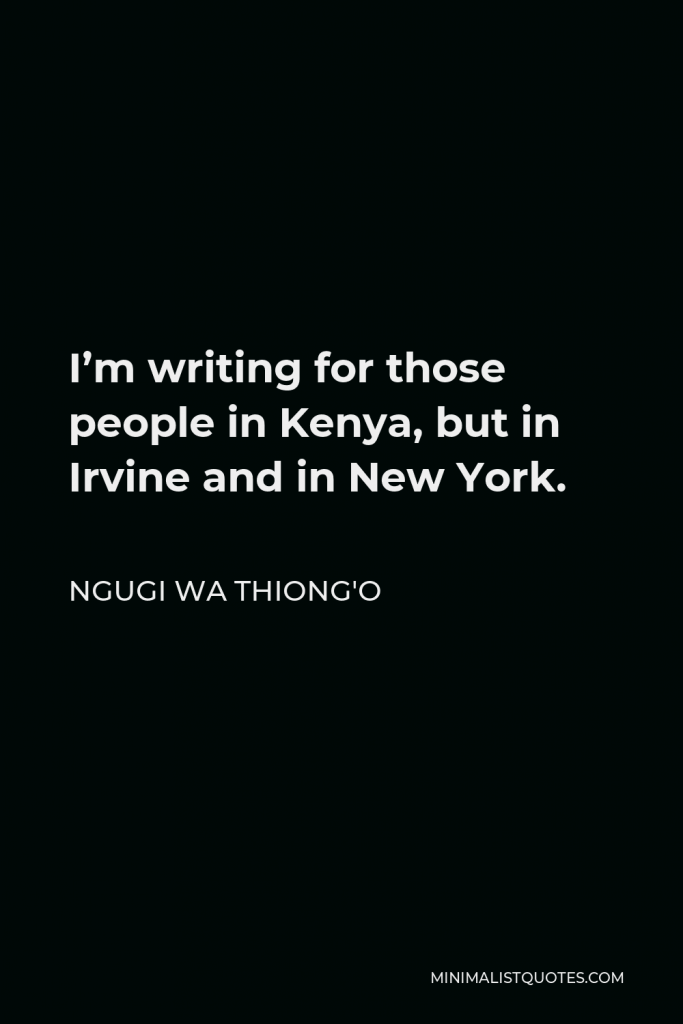

I’m writing for those people in Kenya, but in Irvine and in New York.
NGUGI WA THIONG'O

